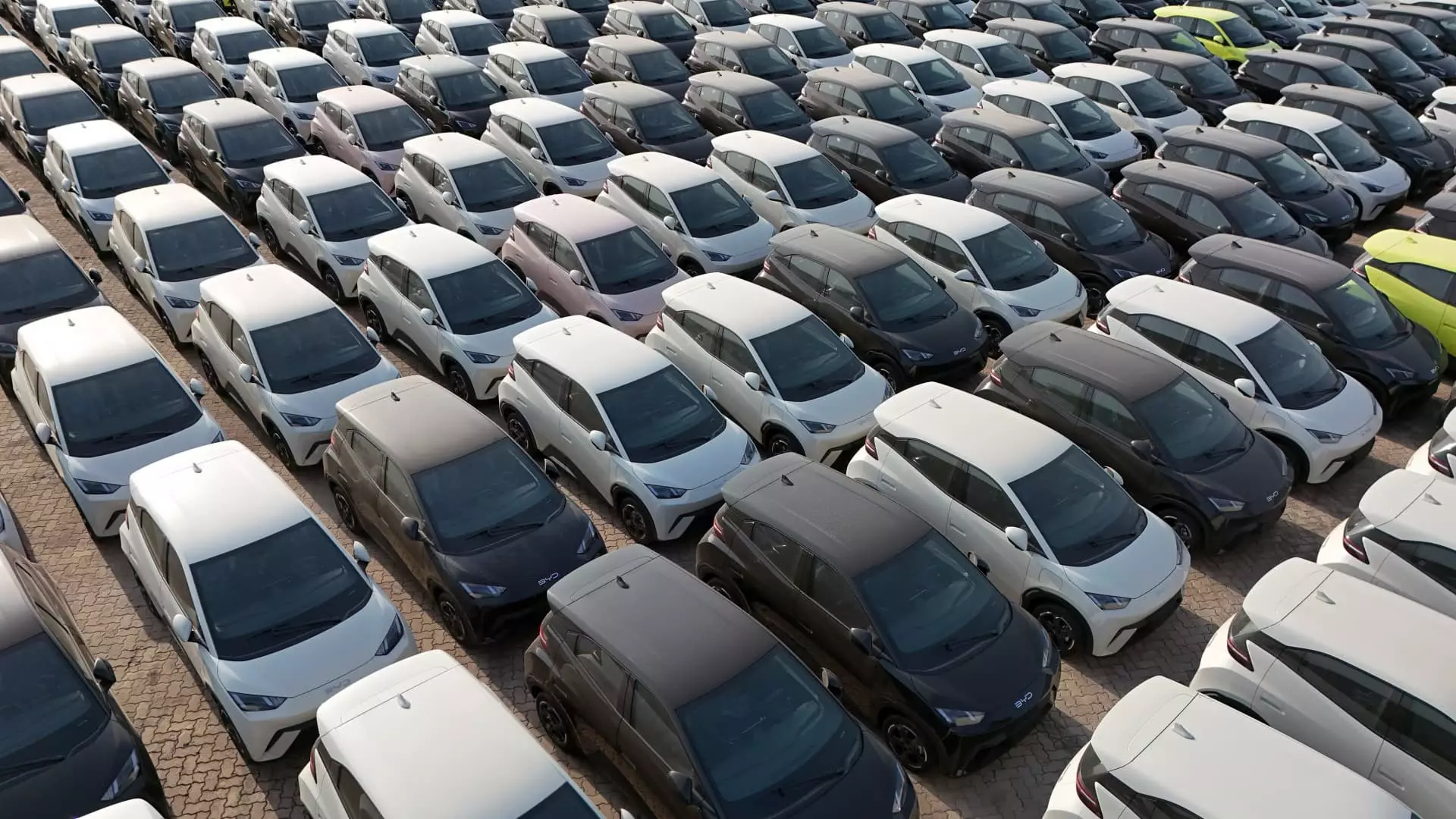The Chinese government recently expressed its discontent with the European Union’s decision to impose tariffs on electric vehicle imports from China. According to a Ministry of Commerce spokesperson, Beijing believes that the EU’s investigation into China’s subsidies for its electric vehicle industry has led to biased conclusions. The government went as far as to accuse the bloc of promoting unfair competition, sparking tensions between the two economic powerhouses. The Ministry of Commerce spokesperson asserted that China would take all necessary measures to protect the rights and interests of Chinese companies in the face of these tariffs.
In response to concerns about China’s generous subsidies for its electric vehicle industry distorting competition in Europe, the European Commission decided to lower import duties on electric vehicle manufacturers, including Tesla. The tariffs on electric vehicles from China were reduced, with Elon Musk’s Tesla facing a rate of 9% as opposed to the initially proposed 20.8%. Additionally, the EU lowered tariffs on other Chinese electric car makers such as BYD, SAIC, and Geely. This move by the European Commission aims to address the imbalance created by China’s subsidies and ensure fair competition within the automotive industry.
Chinese Ministry’s Perspective
The Chinese Commerce Ministry expressed disappointment with the EU’s final ruling, stating that it did not fully consider the evidence and legal documents provided by the Chinese government and the electric vehicle industry. The Ministry highlighted that China had submitted extensive documentation to defend its position and prevent disruptions in the global automotive supply chain. Despite China’s efforts to engage with the EU and avoid escalating trade tensions, the Ministry reiterated its firm opposition to the EU’s unilateral decision-making process and urged for a resolution of the dispute through dialogue and cooperation.
The ongoing trade dispute between China and the EU concerning electric vehicles has broader implications for the global automotive industry. The imposition of tariffs on Chinese electric vehicle imports not only affects manufacturers in both regions but also disrupts the supply chain and market dynamics. As two major players in the automotive market, China and the EU must find common ground to address concerns about subsidies, competition, and trade practices. The outcome of this dispute will have implications beyond the electric vehicle sector, potentially shaping future trade relations and collaborations in the automotive industry.
Moving forward, it is essential for China and the EU to engage in constructive dialogue and find mutually beneficial solutions to trade disputes related to electric vehicles. Both parties need to uphold transparency, fairness, and cooperation to ensure a level playing field for all stakeholders in the global automotive market. By addressing issues such as subsidies, competition, and tariffs through diplomatic channels, China and the EU can set a precedent for resolving trade conflicts and promoting sustainable economic growth in the automotive industry. Collaboration and compromise are key to navigating the complex landscape of international trade and fostering long-term partnerships between economic powerhouses.

